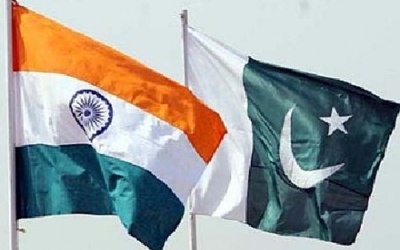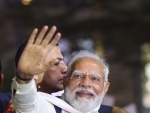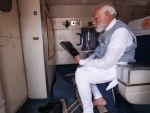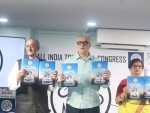
To de-militarize Kashmir is not the answer, to de-terrorize Pakistan is: India tells after Nawaz Sharif after his UN Speech
MEA spokesperson Vikas Swarup made the remarks after Pakistan PM Nawaz Sharif raised the Kashmir issue while addressing at the United Nations General Assembly.
"Sharif UNGA speech: Pak PM gets foreign occupation right, occupier wrong. We urge early vacation of Pak occupied Kashmir," Swarup tweeted.
"Pakistan is not primary victim of terrorism but of its own policies. It is in fact the prime sponsor of terrorism," he said.
"To de-militarize Kashmir is not the answer, to de-terrorize Pakistan is," Swarup said.
"Pakistan's instability arises from its breeding of terrorists. Blaming neighbors is not a solution," Swarup said in one of his series of tweets.
Speaking at the United Nations General Assembly, Pakistan’s Prime Minister Muhammad Nawaz Sharif proposed on Wednesday renewed peace talks with India, aimed at defining the relationship between the Asian countries ‘as one of cooperation, not confrontation.’
He said that one of his key priorities is to strengthen relationship with neighbouring India, to end the conflict that dates back to the independence of both countries.
“When I assumed office of the Prime Minister in June 2013, for the third time, one of my first priorities was to normalize relations with India. I reached out to the Indian leadership to emphasize that our common enemy was poverty and underdevelopment. Cooperation, not confrontation, should define our relationship,” he said.
“Yet today, ceasefire violations along the Line of Control and the Working Boundary are intensifying, causing civilian deaths including women and children,” he told the Assembly’s 70th annual General Debate.
Sharif also added that the issue of Kashmir can only be resolved if peaceful dialogue is renewed between India and Pakistan along with consultations with Kashmiris.
“Consultations with Kashmiris, who are an integral part of the dispute, are essential to evolving a peaceful solution. Since 1947, the Kashmir dispute has remained unresolved. UN Security Council resolutions have remained unimplemented. Three generations of Kashmiris have only seen broken, promises and brutal oppression. Over 100,000 have died in their struggle for self-determination. This is the most persistent failure of the United Nations,” he explained.
He suggested a four-step measure to be implemented as part of the new peace initiative.
He said, “One, we propose that Pakistan and India formalize and respect the 2003 understanding for a complete ceasefire on the Line of Control in Kashmir. For this purpose, we call for UNMOGIP's expansion to monitor the observance of the ceasefire."
"Two, we propose, that Pakistan and India reaffirm that they will not resort to the use or the threat of use of force under any circumstances. This is a central element of the UN Charter," he added.
He said, "Three, steps be taken to demilitarize Kashmir. Four, agree to an unconditional mutual withdrawal from Siachen Glacier, the world's highest battleground,” said the Prime Minister.
Turning to other issues, he also spoke about the repeated terrorist attacks Pakistan faces and underscored that his country is a victim of terrorism.
He said, “The global threat of terrorism cannot be defeated unless we address its underlying causes. Poverty and ignorance are part of the problem. Extremist ideologies must be opposed. But the narrative of the terrorists also has to be countered through the just resolution of the several instances of oppression and injustice against Muslims in various parts of the world."
Unfortunately, some seek to use the global campaign against terrorism to suppress the legitimate right of occupied peoples to self-determination,” he added.
Support Our Journalism
We cannot do without you.. your contribution supports unbiased journalism
IBNS is not driven by any ism- not wokeism, not racism, not skewed secularism, not hyper right-wing or left liberal ideals, nor by any hardline religious beliefs or hyper nationalism. We want to serve you good old objective news, as they are. We do not judge or preach. We let people decide for themselves. We only try to present factual and well-sourced news.







